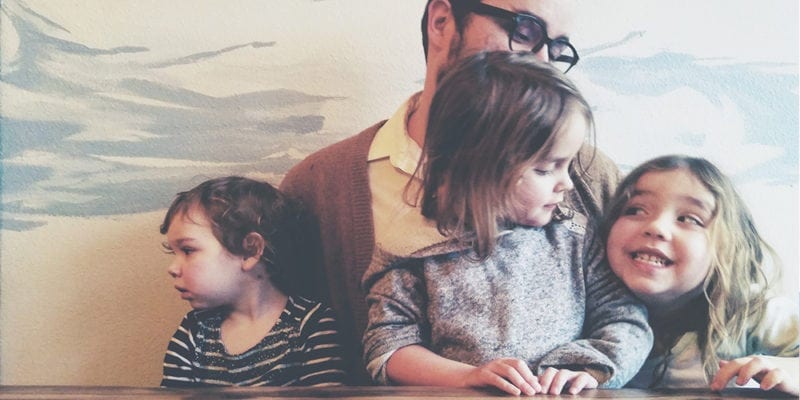Ed Schmitt’s wife had just died, the medical bills were piling up, and his credit cards were maxed out. To make matters worse, one of his two young daughters was sick with the same rare disease that took his wife’s life. She was dying, and he was trying to manage it all by himself. Across town, a hairdresser named Sharon Stevens read about the family’s misfortune in a newspaper and felt like she needed to help. So she organized a fundraiser. But after meeting Ed and his girls, she felt like she needed to do more. So she called the hospital to find out the total amount he owed. When she found out he owed over $400K, she became single-minded about helping him and his daughters. When he tried to reject her help, she said, “I’m no good at plenty of things. Taking no for an answer ain’t one of them.”
Ed and Sharon’s story is beautifully told in a new movie called Ordinary Angels. It’s a true story about a suffering family and a community of people who came together to help them. Everyone suffers at some point. It’s not if it will happen but when. While everyone tries to avoid suffering, suffering isn’t without purpose. Suffering can deepen our character, strengthen our resilience, and bolster our faith. However, there are ways men suffer that are unnecessary, unhealthy, and unproductive. There are things we could do differently to support other men suffering or if we are struggling ourselves. Here are 4 ways men shouldn’t suffer.
1. Silently
Author Brene Brown said in a TED talk that she was approached by a man at a book signing. He said he liked what she had to say about shame and vulnerability but was wondering why she didn’t mention men. After she replied that she didn’t study men, he said, “That’s convenient. You say to reach out, tell our story, be vulnerable, but do you see those books you just signed for my wife and my three daughters? They would rather I die on my white horse than watch me fall down.” Whether it’s a fear of being perceived as weak or falling short of expectations, there are too many men suffering in silence. Find someone with whom you can share your pain.
2. Alone
This doesn’t mean men shouldn’t ever feel lonely. It means they shouldn’t suffer alone. That’s what Ed Schmitt was doing, but none of us is meant to be alone. Too many men are either afraid or too proud to share with others how they are struggling, or even that they are struggling at all. Then there are those who bravely step out and share with other men how they are suffering only to be ignored or, worse, belittled. We need to be neither of those guys. Being isolated in our suffering never increases our strength; it only makes our friendships more superficial and our hearts heavier. Pray and search for someone willing to walk with you, who is willing to emotionally share your burdens.
3. Confused
There’s a lot of confusion about what it means to be a man these days. Be tough but also sensitive—but not too sensitive. Share emotions without being overly emotional. Be strong and commanding, but not too commanding, because you don’t want to be domineering. Be vulnerable, but remember not to share too much. All these messages can be tough to decipher. Many men are left confused, and in the end, it’s easier for them simply to choose to suffer alone and in silence. In Ordinary Angels, Ed refused Sharon’s help over and over because it was “his job” to solve his problems. The last thing suffering men need is the added burden of confusion about how to be. Men need to be given the freedom to be vulnerable and accept the comfort and help of others. If a friend is going through a hard time, give him permission to be raw. And if you are in a tough season, have the courage to be authentic and ask for help. Give your kids permission to do the same. It will be a blessing to them.
4. Ashamed
As men, we’re supposed to know all and be able to fix all. When we lack the knowledge we think we should have or experience moments of weakness, we see ourselves as less of a man. This leads to a great amount of shame. For the longest time, I knew nothing (and still don’t) about cars, home repair, or business. I’ve never been good at making money, and I’ll always try to avoid a physical confrontation—all the “manly” stuff. So I’m familiar with this type of shame. But none of that defines a man. Losing a job, struggling to provide for our families, or facing illness is enough suffering without adding needless shame on top of it.
Sound off: What are some other ways men shouldn’t suffer?











Huddle up with your kids and ask, “What do you do when you’re feeling down?”